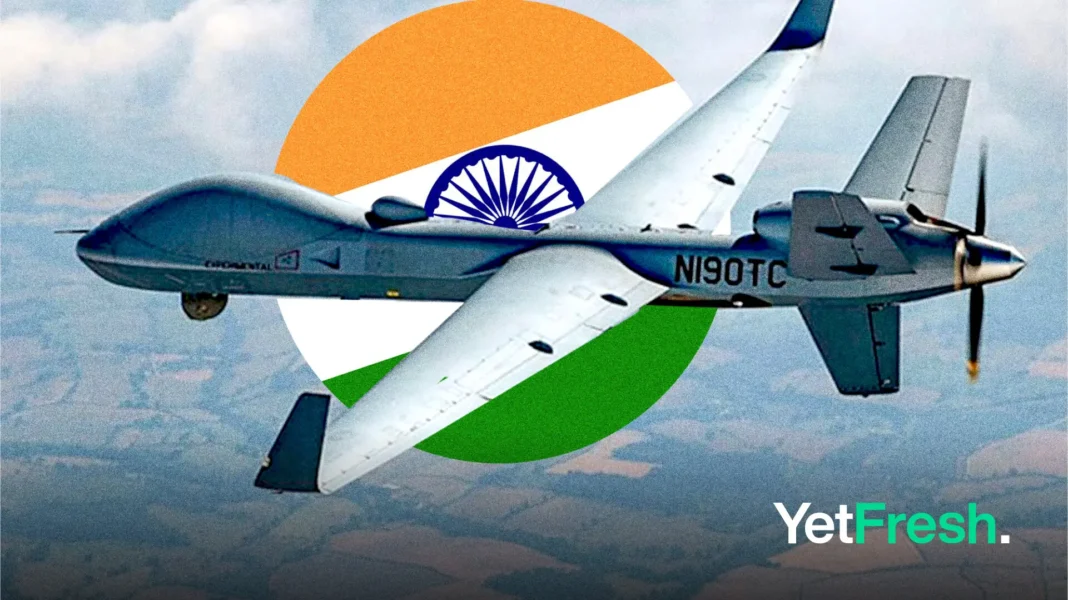Summary:
- India has deployed advanced drones along the Bangladesh border to enhance surveillance and counter potential threats.
- Allegations surfaced about Bangladesh deploying Turkish-made Bayraktar TB2 drones near the border, which Bangladesh denies as false.
- The Bayraktar TB2 drones are highly capable of both surveillance and precision strikes, raising security concerns in India.
- Both nations are increasing their use of advanced technologies, including anti-drone systems, to strengthen border security amidst rising tensions.
India and Bangladesh have found themselves at the center of heightened border security tensions following reports of advanced drone deployments along their shared boundary. This development underscores a significant escalation in surveillance and defense strategies by both nations, with potential implications for regional stability.
According to reports, India has deployed unmanned aerial vehicles (UAVs) near its border with Bangladesh in response to alleged sightings of Turkish-made Bayraktar TB2 drones operated by Bangladesh. The Bayraktar TB2, renowned for its dual capabilities in surveillance and precision strikes, was reportedly observed near strategic areas such as West Bengal and Meghalaya. Indian media sources claim these drones were deployed by Bangladesh for intelligence-gathering missions close to the Indian border. However, Bangladesh’s Ministry of Defense has categorically denied these allegations, stating that no drones have been deployed outside routine operations. A spokesperson dismissed the reports as “completely untrue and fabricated,” attributing them to misinformation campaigns.
The Bayraktar TB2, developed by Turkey’s Baykar, is a sophisticated UAV with an operational range of 300 kilometers and an endurance of up to 27 hours. Its deployment near the border—if confirmed—would mark a significant enhancement in Bangladesh’s surveillance capabilities. Indian authorities have expressed concerns over the potential security risks posed by these drones, particularly in regions like the “chicken neck” corridor in West Bengal, which connects India’s northeastern states to the rest of the country.
In response to these developments, India has intensified its own surveillance efforts. The Indian Border Security Force (BSF) has reportedly deployed advanced UAVs, including models like the Heron TP, to monitor border activities more effectively. Additionally, India is enhancing its anti-drone systems and radar capabilities to counter any perceived threats from across the border.
The situation has sparked debates about the broader implications for India-Bangladesh relations. While both governments have refrained from escalating rhetoric publicly, these military maneuvers highlight underlying tensions. Analysts suggest that such actions could either lead to increased diplomatic engagement or exacerbate existing frictions between the two neighbors.
Bangladesh’s acquisition of Bayraktar TB2 drones earlier this year was part of its broader military modernization efforts. However, Indian officials have speculated that their deployment near the border may serve more as a domestic political signal than a direct threat to India. This view is supported by reports suggesting that such moves are aimed at bolstering internal support amidst political unrest in Bangladesh.
Despite these developments, officials on both sides have emphasized maintaining open communication channels. The BSF Inspector General for Meghalaya Frontier recently stated that minor issues with Bangladesh’s Border Guard (BGB) have been resolved amicably, underscoring efforts to prevent further deterioration in bilateral ties.
The evolving situation highlights the growing reliance on UAVs in modern border security strategies. As both nations continue to enhance their surveillance capabilities, regional observers will closely monitor whether these measures lead to constructive dialogue or further strain an already complex relationship between India and Bangladesh.
Source: Daily Inqilab




